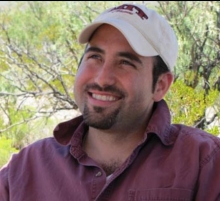CEE Seminar: Terrestrial Sources of Evapotranspiration in the Southwestern U.S. & Northwest Mexico

Professor - Arizona State University
School of Earth & Space Exploration
School of Sustainable Engineering & the Built Environment
Abstract: Despite its importance in the hydrological cycle, the fluxes of water vapor derived from the terrestrial land surface are difficult to estimate. In this talk, I will present recent estimates of evapotranspiration and its abiotic and biotic components obtained from a macroscale hydrologic model that has been modified to properly account for natural ecosystem structure and agricultural areas in the region. Daily, seasonal and annual evapotranspiration estimates from 2000-2012 are compared to a network of eddy covariance towers, to water balance estimates and to remotely sensed and model-derived gridded products. The confidence built on the macroscale model estimates provides a means to assess the major sources of evapotranspiration during winter and summer seasons. In addition, an assessment of the impact of two types of land cover change - agricultural extensification and deforestation for pasture establishment - on regional evapotranspiration is discussed.
Biography: Enrique R. Vivoni received his B.S., M.S. and Ph.D. from the Massachusetts Institute of Technology in civil and environmental engineering. He holds a joint appointment as a professor in the School of Earth and Space Exploration and the School of Sustainable Engineering and the Built Environment at Arizona State University. His research focuses on water, climate and ecosystem processes and interactions with sustainability and management in the North American deserts. He has won a number of national awards, including the Leopold Leadership Fellowship, ASCE Hubert Prize for Civil Engineering Research and the Presidential Early Career Award for Scientists and Engineers.
